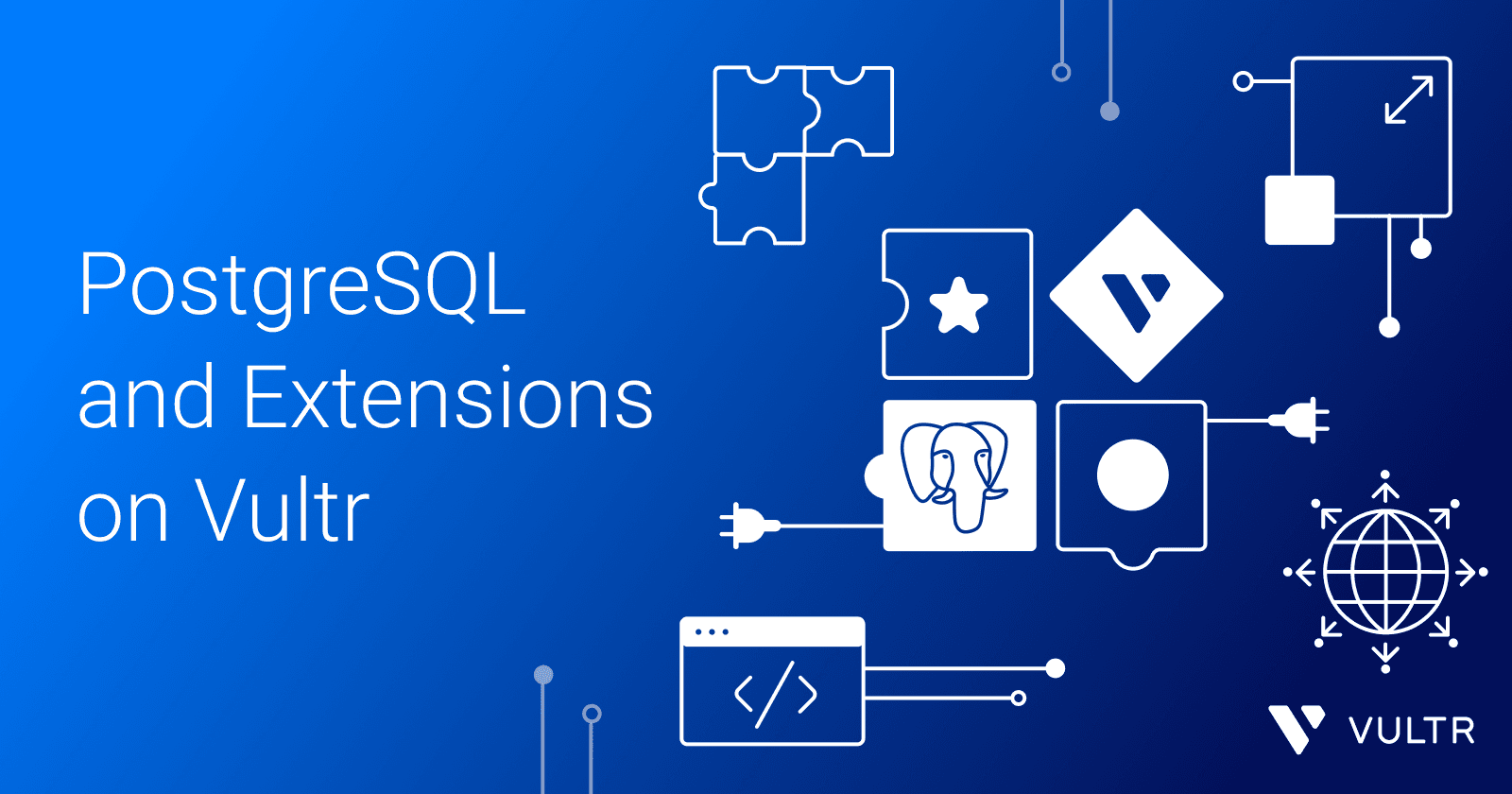PostgreSQL is renowned for its versatility and powerful relational database capabilities. As an open-source solution, it has been embraced by developers across industries to handle a wide variety of data workloads. On Vultr's platform, PostgreSQL is available as a fully managed service – Vultr Managed Databases for PostgreSQL – making it even easier to deploy and manage.
What truly enhances PostgreSQL's flexibility, however, is its extensive library of extensions, which add specialized functions and data types. Vultr offers a variety of these extensions, which are directly available through its platform. Today, we'll focus on two particularly useful ones: pgvector and PostGIS.
The power of PostgreSQL extensions on Vultr
Extensions like pgvector and PostGIS supercharge PostgreSQL and enable you to build applications beyond traditional relational data models. These extensions allow you to store new data types and perform complex queries and analysis within the PostgreSQL environment.
Let's dive into what these extensions can do and how you can leverage them for specific use cases on Vultr.
pgvector: Adding vector similarity search to PostgreSQL
pgvector transforms PostgreSQL into a powerful vector database, making storing and query vector data possible. This is particularly useful for modern AI and machine learning workloads that rely on vectors to represent data points, such as user preferences or image characteristics.
One of pgvector's standout features is its vector similarity search capability. This allows PostgreSQL to measure the similarity between two vectors, making it ideal for use cases such as:
- Recommendation engines: Suggesting content or products based on user behavior.
- Natural language processing (NLP): Identifying similarities in textual data.
- Image search: Comparing images to find visually similar content.
Additionally, pgvector can store embeddings, a crucial component in retrieval-augmented generation (RAG) models, which enable AI applications to retrieve and generate content based on stored data. By utilizing pgvector on Vultr, businesses can integrate AI and machine learning seamlessly into their existing database infrastructure without the need for additional, costly vector-specific databases.
The combination of PostgreSQL and pgvector on Vultr's affordable, globally distributed cloud infrastructure provides an optimal solution for AI-driven applications that require fast, reliable vector search.
PostGIS: Geospatial data in PostgreSQL
PostGIS is the go-to extension for applications requiring geospatial data for PostgreSQL. PostGIS expands PostgreSQL's capabilities to handle spatial data formats, including points, lines, polygons, and even raster data like elevation or weather patterns.
PostGIS brings robust indexing and querying features to geospatial data, enabling complex operations like:
- Distance measurements: Calculating the shortest path or the distance between two points.
- Spatial analysis: Finding intersections, measuring areas, or identifying regions within a specified range.
- Data processing: Modifying and analyzing geospatial datasets.
With its ability to store and analyze spatial data, PostGIS is essential for a wide range of applications, such as:
Mapping: Visualizing data in geographic formats.
- Routing and network planning: Optimizing routes for transportation or logistics.
- Site selection: Considering geospatial factors, identifying the best locations for new infrastructure.
- Risk analysis: Evaluating geographic regions for potential hazards or opportunities.
By using PostGIS on Vultr's high-performance PostgreSQL database, businesses can efficiently store, process, and act on their geospatial data. Whether you're optimizing delivery routes, selecting a new data center location, or performing geographic risk assessments, PostGIS on Vultr is built to scale.
Supercharging PostgreSQL with pgvector and PostGIS on Vultr
Both pgvector and PostGIS showcase how PostgreSQL, enhanced by extensions, can power advanced use cases across industries. Whether building an AI-driven recommendation engine or managing complex geospatial datasets, these extensions allow you to leverage PostgreSQL for a wide range of modern data workloads.
Vultr's Managed Databases for PostgreSQL make it simple to deploy and maintain these capabilities while benefiting from a cost-effective, reliable cloud infrastructure with global reach. With pgvector and PostGIS, your PostgreSQL database can support cutting-edge applications without the need for additional, specialized platforms.
Explore the full potential of PostgreSQL on Vultr and start building your next AI or geospatial application today.

